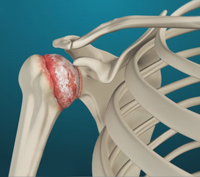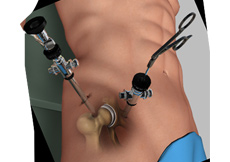Arthritis
Do you know who is the best Arthritis Surgeon for Arthritis surgery in Delhi? Do you know why you have to Choose the best Rheumatologist in Delhi, India? Do you know why choose the best arthritis doctor in Delhi, India? Do you know which is the best hospital for Arthritis surgery in Delhi? Why do you have to search for the best Arthritis Treatment Hospital in India? Caring is another word that completely describes why Life In Motion Clinic is the best Arthritis Treatment Hospital in Delhi, India, and the best joint pain treatment hospital in Delhi. We at Life IN Motion Clinic (LMC) offer world-class facilities to patients with exceptionally diagnostic evaluation by our experienced orthopaedic doctors which comprise top rheumatologist in Delhi, India. Book an online appointment with Dr. Rahul Sharma, the best arthritis surgeon in Delhi with 16+ years of experience as the Best rheumatologist in Delhi. At Life In Motion, we have Specialists in Sjogren's syndrome, myositis, Scleroderma, Ankylosing Spondylitis, Gout (uric acid), arthritis, Rheumatoid arthritis, Lupus (SLE), scleroderma, and vasculitis. That is why LMC is one of the Best Rheumatology hospital in Delhi, India.
What is arthritis?
 The word "arthritis" means inflammation of a joint. In general, it is used to describe a condition in which the cartilage was damaged. Think, if the damage was done to any part of our body, then why do we respond? It is because of Inflammation which is a body's natural response towards any injury. Pain, redness, and swelling are the most common warning signs of that inflammation.
Life In Motion Clinic is the best Arthritis Treatment Hospital in India to discover the best
doctors for arthritis in Delhi. Dr. Rahul Sharma is the Best arthritis surgeon in Delhi, performing Arthritis surgery in Delhi for the last two decades.
The word "arthritis" means inflammation of a joint. In general, it is used to describe a condition in which the cartilage was damaged. Think, if the damage was done to any part of our body, then why do we respond? It is because of Inflammation which is a body's natural response towards any injury. Pain, redness, and swelling are the most common warning signs of that inflammation.
Life In Motion Clinic is the best Arthritis Treatment Hospital in India to discover the best
doctors for arthritis in Delhi. Dr. Rahul Sharma is the Best arthritis surgeon in Delhi, performing Arthritis surgery in Delhi for the last two decades.
Do you know what cartilage is? It is a padding that is responsible to absorb stress and tension. Arthritis doctors verify the type and stage of arthritis on these factors - variation of synovial inflammation and the portion of damaged cartilage. The initial or earlier pain is due to inflammation, while the latter states are very painful. When the cartilage between raw bones is worn away, then most of the pain comes. It is a painful condition. It is because the pain comes from mechanical friction that is due to the raw bones rubbing each other as the cartilage between bones worn away. Here comes the role of Arthritis Surgeon, who diagnose, analyze and finalize that arthritis surgery is require.
Life In Motion Clinic is one of India's Best arthritis rehabilitation in Delhi and is famous for the Arthritis Treatment giving care with advanced facilities. We at LMC provide Arthritis treatment for the following Arthritis problems - Fibromyalgia (FMS), Ankylosing Spondylitis, Carpal Tunnel Syndrome, Giant Cell Arteritis, CPPD, Ehlers-Danlos Syndrome, Myositis, Psoriatic Arthritis, Juvenile Arthritis, Osteoarthritis, and so on. There are over 100 different types of rheumatic diseases. The most common are:
Osteoarthritis: Osteoarthritis is the most common type of arthritis and is also called a degenerative joint disease. It occurs mainly in older ages who are more than 60+ years. When age demands, then this disease affects the cartilage. Osteoarthritis is responsible for the wearing of the cartilage over time. In extreme cases, the cartilage completely wears away, which means pain starts in joints because without cartilage the bone to bone rubbing happens. In extreme Osteoarthritis cases, older people bear immense pain. In this condition, the bone sticks out to the joint end, known as a bone Spur.
Life In Motion Clinic is a pioneer Arthritis Treatment Hospital in India. We provide world-class care and medical facilities to arthritis patients. We aim to make them enjoy their life again and get free from Arthritis related health issues. Book an online appointment with Dr. Rahul Sharma, the best arthritis surgeon in Delhi. At LMC, Discuss online all your Arthritis health problems.
Osteoarthritis causes joint pain and can limit a person's normal range of motion (the ability to freely move and bend a joint). When severe, the joint may lose all movement, causing a person to become disabled. Disability most often happens when the disease affects the spine, Knees, and Hips.
 Rheumatoid Arthritis:
This is an auto-immune disease in which the body's immune system (the body's way of fighting infection) attacks healthy joints, tissues, and organs.
Occurring most often in women of childbearing age (15-44), this disease inflames the lining(or synovium) of joints.
Rheumatoid Arthritis is responsible for the swelling, pain, stiffness, and loss of the normal functioning of Joints.
To get rid of the severe rheumatoid arthritis that is responsible for the change or deforms the Joints. Contact Dr. Rahul Sharma is the best arthritis doctor in Delhi.
For example, the joints in a person's finger can become deformed, causing the finger to bend or curve.
Rheumatoid Arthritis:
This is an auto-immune disease in which the body's immune system (the body's way of fighting infection) attacks healthy joints, tissues, and organs.
Occurring most often in women of childbearing age (15-44), this disease inflames the lining(or synovium) of joints.
Rheumatoid Arthritis is responsible for the swelling, pain, stiffness, and loss of the normal functioning of Joints.
To get rid of the severe rheumatoid arthritis that is responsible for the change or deforms the Joints. Contact Dr. Rahul Sharma is the best arthritis doctor in Delhi.
For example, the joints in a person's finger can become deformed, causing the finger to bend or curve.
During rheumatoid Arthritis disease, the feet and hand joints are affected and tend to be symmetrical. It means this disease affects the same joints on both sides of the same body. For example - Both the hands or both the feet are affected. It is called symmetrical arthritis. Women are 2 to 3 times much get affected by this disease as compared to men.
Post-traumatic arthritis: Arthritis developing following an injury to the hand, wrist or elbow is called post-traumatic arthritis. The condition may develop years after the trauma such as a fracture, severe sprain, or ligament tears.
Psoriatic arthritis: This form of Arthritis occurs in some persons with psoriasis, a scaling skin disorder, affecting the joints at the ends of the fingers and toes. It can also cause changes in the fingernails and toenails. Back pain may occur if the spine is involved.
What are the causes of arthritis?
Osteoarthritis is caused by the wearing out of the cartilage covering the bone ends in a joint. This may be due to excessive strain over prolonged periods of time, or due to other joint diseases, injury or deformity. Primary osteoarthritis is commonly associated with ageing and general degeneration of joints.
Secondary osteoarthritis is generally the consequence of another disease or condition, such as repeated trauma or surgery to the affected joint, or abnormal joint structures from birth.
Rheumatoid arthritis is often caused when the genes responsible for the disease is triggered by infection or any environmental factors. With this trigger, the body produces antibodies, the defence mechanism of the body, against the joint and may cause rheumatoid arthritis.
Fractures at joint surfaces and joint dislocations may predispose an individual to develop post-traumatic arthritis. It is considered that your body secretes certain hormones following injury, which may cause the death of the cartilage cells.
Uric acid crystal build-up is the cause of gout and long-term crystal build-up in the joints may cause deformity.
What are the symptoms of arthritis?
There are more than 150 different forms of arthritis. Symptoms vary according to the form of Arthritis. Each form affects the body differently. Arthritic symptoms generally include swelling and pain or tenderness in one or more joints for more than two weeks, redness or heat in a joint, limitation of motion of joint, early morning stiffness, and skin changes including rashes.
Diagnosis of arthritis
Doctors diagnose arthritis with a medical history, physical exam and X-rays of the affected part. Computed tomography (CT) scans and magnetic resonance imaging (MRI) scans are also performed to diagnose arthritis.
Treatment options for arthritis
There is no cure for arthritis. Your doctor may prescribe anti-inflammatory medicine. They may recommend occupational therapy or physiotherapy, which includes exercises and heat treatment. In severe cases, surgery may be suggested. The type of surgery will depend on your age and severity of the disease. In the elderly with severe arthritis, joint replacement can give good results.
Initial treatment for arthritis is conservative, consisting of rest, avoidance of vigorous weight-bearing activities, and the use of non-narcotic analgesic and/or anti-inflammatory medications. With worsening symptoms, a cane or braces may be helpful. For more severe symptoms, an injection of cortisone into the joint is frequently advised and can be quite helpful. When conservative measures have been exhausted, offer no relief, and has become disabling, the surgery may be recommended. Surgery is usually considered if nonsurgical treatment fails to give relief. There are different surgical procedures that can be used and may include:
Synovectomy: This surgery is usually indicated for early cases of inflammatory arthritis where there is significant swelling (synovitis) that is causing pain or is limiting the range of motion. Synovectomy is surgical removal of the inflamed synovium(tissue lining the joint). The procedure may be performed using arthroscopy.
 Arthroplasty: In this procedure, your surgeon removes the affected joint and replaces it with an artificial implant. It is usually performed when the joint is severely damaged by osteoarthritis, rheumatoid arthritis, post-traumatic arthritis or avascular necrosis. The goal of the surgery is to relieve pain and restore the normal functioning of the joint. Total joint replacement can be performed through an open or minimally invasive approach.
Arthroplasty: In this procedure, your surgeon removes the affected joint and replaces it with an artificial implant. It is usually performed when the joint is severely damaged by osteoarthritis, rheumatoid arthritis, post-traumatic arthritis or avascular necrosis. The goal of the surgery is to relieve pain and restore the normal functioning of the joint. Total joint replacement can be performed through an open or minimally invasive approach.
Arthrodesis: A fusion, also called an arthrodesis involves removal of the joints and fusing the bones of the joint together using metal wires or screws. This surgery is usually indicated when the joints are severely damaged, when there is limited mobility, damage to the surrounding ligaments and tendons, failed the previous arthroplasty, and when heavy manual use is expected.
Your surgeon will discuss the options and help you decide which type of surgery is the most appropriate for you.
